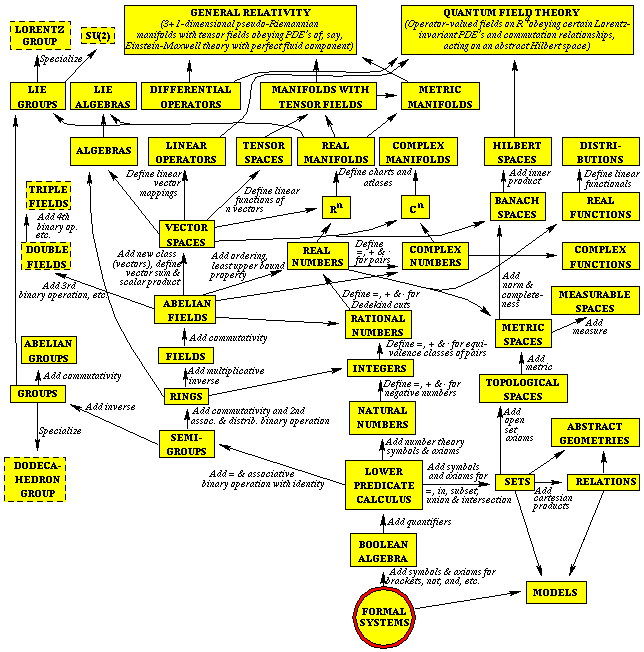EDIT: some people didn't like what I've written below. Rather than change it, I've added comments below instead. Why should I change it anyway? If you don't agree, that's your opinion; but these are mine, so why shouldn't Max see a fair range of differing views? One of the things I was trying to say is that if you want to have a successful career ACTUALLY USING PROPER MATHEMATICS beyond just, say, calculating percentages or putting numbers into a formula, then your chances really are very slim unless you're EXCEPTIONALLY good. The number of good jobs with genuine mathematical content is far, far smaller than the number of mathematicians with reasonable ability (at least in England). The sooner Max knows this, the better he can prepare properly and take precautions.
Hi Max, it's nice to see some youngsters with interest!
Firstly, Hardy's Divergent Series is a great, fun book, but probably too hard and of little use for your future career (it's very old-fashioned and not likely ever to come back into fashion - but I could be wrong).
My personal opinions for what they're worth (i.e., not very much); some (many?) people would disagree!
The most important thing by far is to go to the very best university you can. I assume that you have genuine mathematical talent (you must be easily the best at mathematics in your school) and that you want to go to the top university in Holland; don't waste your time at second best places. (If not, then improving your school grades or whatever you need is the top priority!) It's far better to be in the middle at the best university than at the top in a poor university.
If you can't decide which is the "best", ask your teachers, see which ones have Fields Medallists/Nobel Prize winners, look at league tables, etc. (I'm English and don't know how the Dutch system works, so apologies if this sounds like nonsense). As an absolute minimum, it MUST be a university which offers Ph.D. degrees in all areas of mathematics.
At good universities, you have nothing to worry about; your lectures/university library will provide everything you need.
Almost certainly, you will buy the wrong books (either far too easy or far too difficult) that you'll never read (or will quickly finish and want to throw away). Almost certainly, your mathematical tastes will change significantly over the next few years.
Sad, but true: many (perhaps even "most" or "almost all") maths books are boring, tedious, unsuitable and impossible to read (and different people will disagree about which books are which, so advice is not much use!)
Personally, almost every mathematical book I bought as an undergraduate or before was a total waste of money; with more experience you'll know better in future what to look for; but now is the worst possible time for you to buy books.
Until you have spent at least one or two years at university, SAVE YOUR MONEY!!! GO TO LIBRARIES!! DO NOT BUY MATHEMATICS BOOKS!!!!! (Unless you are rich or someone else is paying...)
If you do buy books, only do so after you have looked at them for several weeks or months from a library!
Only buy books with LOTS of exercises!(Apart from rare exceptions, e.g. Hardy and Wright: An Introduction to the Theory of Numbers.)
Doing fun research problems of your own, either directly or indirectly inspired by books, is just as important as pure reading; and try not to read too much right now. You won't discover anything new, but that's not the purpose (and the internet is too big - don't look up the answers too quickly, or you'll never develop).
Don't listen to everything physicists say when they're talking about mathematics...! Physicists and mathematicians are very different.
Practice basic calculations: calculus, infinite series, Fourier series, complex numbers, differential equations, basic number theory,... and whatever else interests you. It will be very useful in future.
Try looking through things on Wikipedia and the links, and just following wherever your interests take you. You'll learn a surprising amount this way, and enjoy it more too. (But be very careful of the Internet; almost everything online, if not written by proper university mathematicians, is rubbish! MathOverflow and Wikipedia are rare exceptions, but even these have a small amount of rubbish on them).
And finally...
BE FLEXIBLE! Many things you are interested in now might not be to your taste in the future (mathematics is very, very large and no-one can do all parts of it); it is even possible (what a hideous thought!) that you might lose your interest in Mathematics and prefer Physics, Computer Science, Engineering or something else instead; be prepared to change! (Very few people survive up to Ph.D. level and beyond; if you don't become a mathematician, you will get much better jobs after graduation if you do these subjects at university instead...!)
If you still want to study mathematics at university: be prepared for lifetime social exclusion, poverty and unemployment! (This is more for Ph.D. than B.Sc.; perhaps I exaggerate slightly, but you must prepare for the dangers!)


_or asterisks*on either side, not dollar signs. In TeX, use{\emtext}. Dollar signs make the computer process whatever's inside as math, as if you had all those variables to multiply together. The classic example is $difference$ versus difference — notice the spacing around thefs. (In the default TeX font, the correct look is$\textit{difference}$.) The spacing is even weirder for words withffi:$spiffier$,$\textit{spiffier}$, spiffier. $\endgroup$